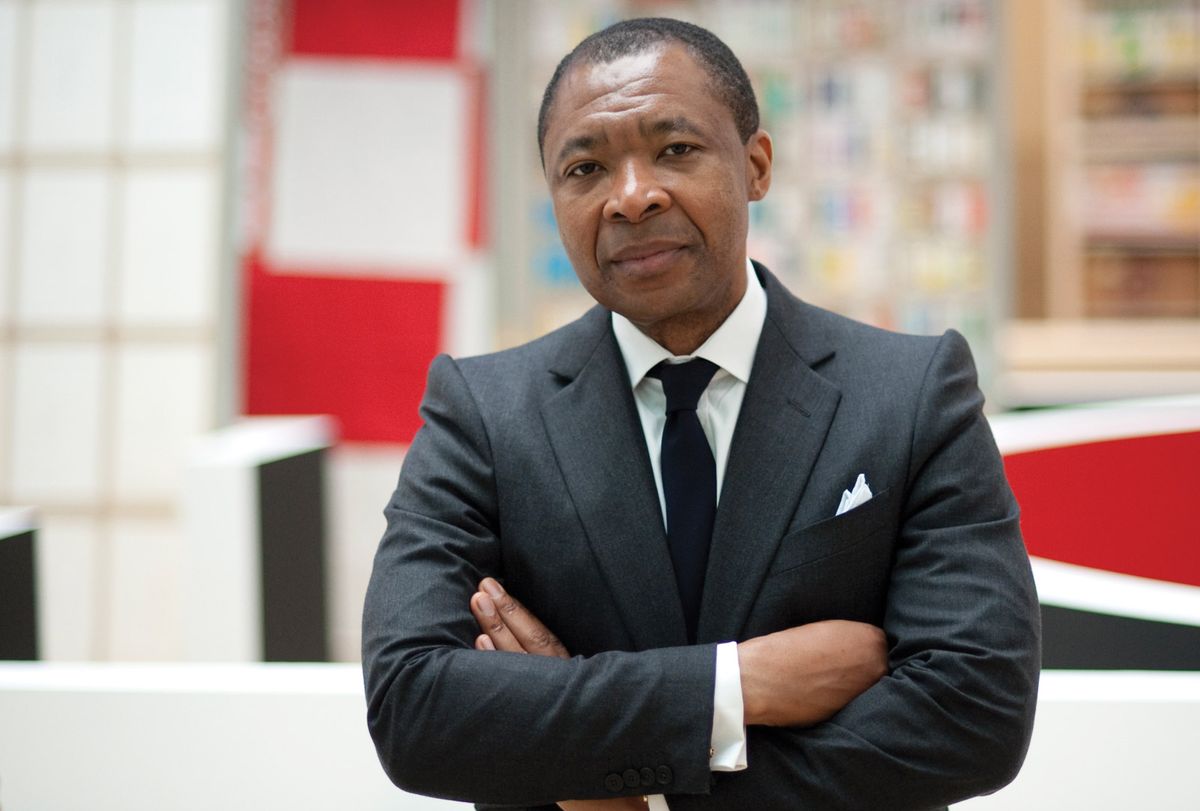In memory of my friend Okwui Enwezor, the visionary and pioneering curator, art critic, educator, magazine co-founder and editor, museum director, poet, writer...
I remember our first of many conversations in 1996 when Okwui was preparing the game-changing second Johannesburg Biennale, which became a seminal statement for a more inclusive and non-Western centric art world, for a truly global conversation. Soon after, we met again in New York, together with the curator Carlos Basualdo. Here we all were, supposedly curating a group show for a book, but we felt limited by the framework we were working in. Would it mean that we would have to find our own structure? VOTI, the Union of the Imaginary, was founded soon after. I remember Okwui being one of the first curators involved in our VOTI conversations, and one night we had a very febrile, feverish conversation about being curators, asking “what does it mean?”
Okwui talked about ideas of cosmopolitanism and creolisation, and about making exhibitions more polycentric. “The notions of hybridity, métissage, cosmopolitanism have been deployed and reworked in order to capture the polycentric and polysemic aspects of these new configurations,” he said. Through the Johannesburg Biennale, Okwui gave an important platform and voice to a group of curators by working with the art critic and curator Octavio Zaya on his section called ‘Alternating Currents’.
Many of the ideas voiced by Okwui at the time are more relevant today than ever before. In a 1997 interview, Okwui said: “We want to explore what the role or what the situation is of being a citizen in the particular context of shifting political landscapes. We want to explore national violence, as well as the question of the national sovereign subject as presently constituted around this idea of a nation.”
He created a revolution in curating contemporary art
Much of what he outlined in his Johannesburg Biennale came to full fruition later, in the larger shows he staged. From ‘The Short Century’ to Documenta, to the Gwangju Biennale, to the triennial at the Palais de Tokyo, to the Venice Biennale, to ‘Postwar’ at the Haus der Kunst: Okwui’s extraordinary large-scale exhibitions always built bridges, always questioned the established and seemingly accepted art histories and never illustrated previously established findings, but functioned as an active laboratory. With all of these shows Okwui multiplied the number of worlds inside museums and biennials and triennials. His fearless exhibitions were never about a synthesis, which would standardise, but a network of interrelationships opening many perspectives.
To conclude with Okwui’s own words, “If we have an open mind, Western art doesn’t have to be seen in opposition to art from elsewhere, but can be seen in a dialogue that helps protect the differences and decisions that present the material, circumstances and conditions of production in which artists fashion their view of what enlightenment can be.”


